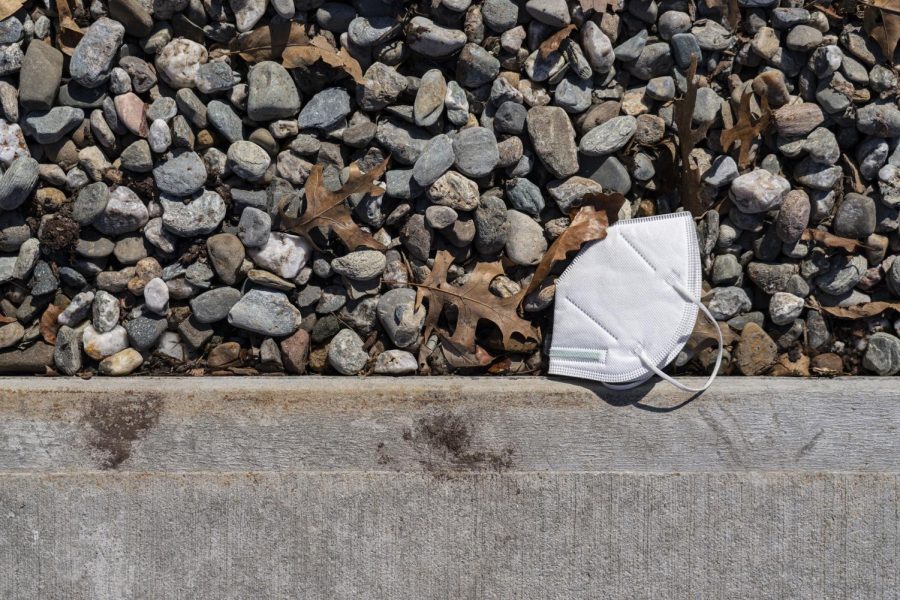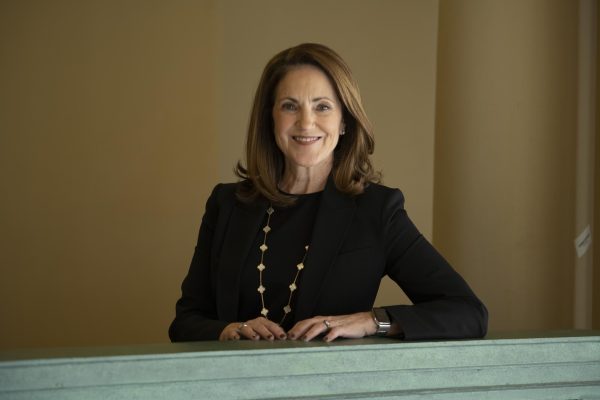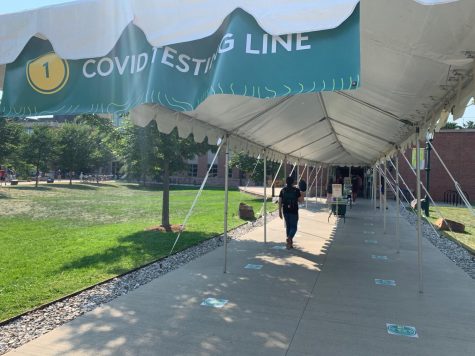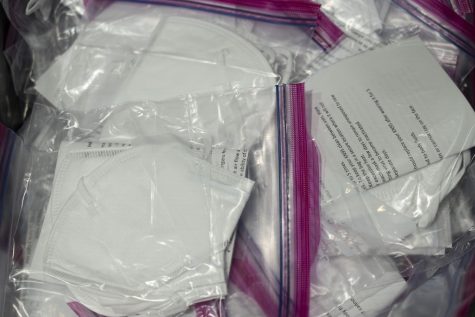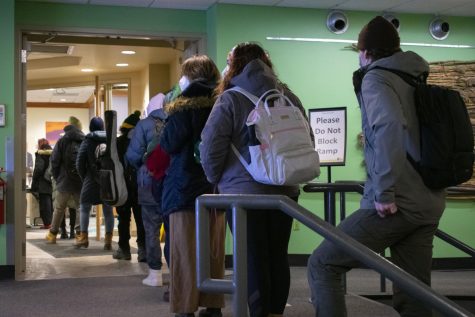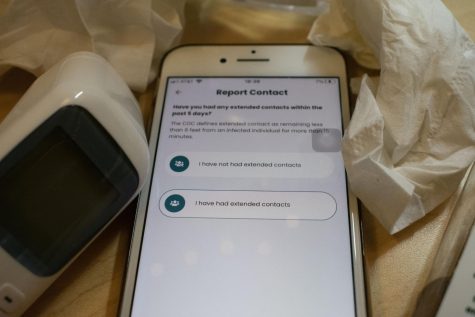UVM community debates mask mandate lift
A K95 mask lies on the gravel next to a sidewalk March 17.
UVM should have taken more time to prepare for the mask mandate dropping, since many community members are at risk for COVID-19 or directly involved with someone who is, said Ellie Miller, president of UVM’s faculty union, United Academics.
UVM lifted the mask mandate after receiving updated guidance from the Vermont Department of Health, said Gary Derr, vice president for public safety and operations.
Other factors such as UVM’s high vaccination and booster rates and its lack of hospitalizations also influenced the decision, he said. He feels very comfortable recommending that masks no longer be required and believes now is the time for this to happen.
Immunocompromised people and those around them should continue to wear a mask if they feel anxious, Derr said. He doesn’t believe anyone will judge a person for continuing to wear a mask.
“UVM doesn’t seem to acknowledge that in a pandemic, we’re talking about something that is socially contagious,” Miller said.
People who are not directly at risk themselves but who are in a day-to-day environment with someone that is, such as an immunocompromised family member, are having a hard time seeking accommodations, Miller said.
If professors who have vulnerable family members are not able to easily change teaching modalities, they should be able to mandate students in their classes to wear masks, Miller stated in a March 16 email.
Faculty who file a modality change request will typically receive a formal response within one week of filing the request, according to themodality change request website. However, the University-wide notification of the lifting mandate came only five days before the change went into effect.
Professors are not allowed to require students to wear masks inside their classrooms, but are able to request that students wear them, according to a March 16 email from United Academics.
Although Miller believes there should have been a delay in the announcement, it makes sense that UVM is moving in that direction at this time, she said.
“Burlington schools started to unmask a couple of days ago,” Miller said. “Given that, it makes sense that the University would move in this direction.”
It may have been a better idea to transition the community to being mask optional more gradually, determining which spaces are highly transmissible and continuing to require masks in those spaces, said senior Sam Pasqualoni, president of SGA.
“It would have been more prudent to wait for a week or two to see if cases spike as a lot of students came back from spring break,” Pasqualoni said.
Still, UVM showed sound judgment in waiting as long as they did to drop the masking requirements as other universities have taken this action much sooner, Pasqualoni said. It makes sense that they made this decision given the information available.
It would not be surprising if people who are immunocompromised or people who care for someone who is immunocompromised feel left behind or ignored by this decision, said Thomas Borchert, president of the Faculty Senate.
“Personal responsibility is insufficient, this is a public health problem,” Borchert said. “So while we all bear responsibility towards the public, it’s also a structural problem.”
Health Commissioner Mark Levine said he is hopeful the pandemic is coming to an end but it will only do so if people are careful about safety and stay up to date on vaccinations, according to a March 14 Vermont Department of Health News Room article.


